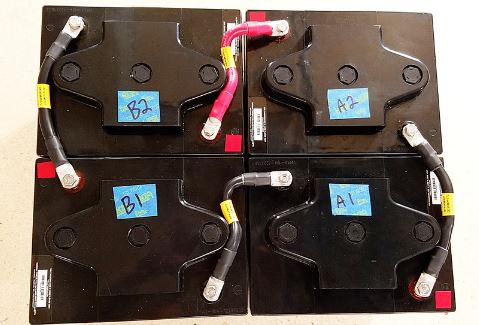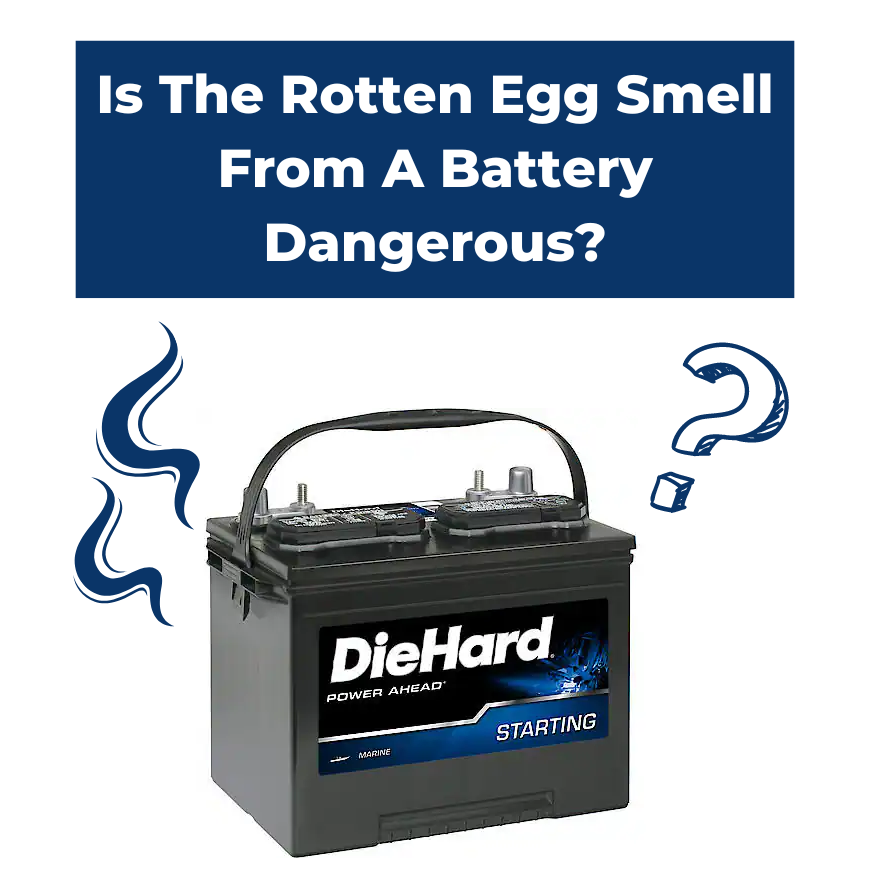When a car battery emits a rotten egg smell, it is a clear indication that something is wrong. So is the rotten egg smell from a battery dangerous? Yes, it is potentially hazardous, and immediate steps should be taken to address the problem. The smell is caused by hydrogen sulfide gas, which is a byproduct of the chemical reaction that occurs inside the battery when it charges.
Hydrogen sulfide gas is poisonous and can cause throat and sinus irritation, headaches, dizziness, and even be lethal in high enough concentrations. It is a colorless gas, making it challenging to detect, and it is denser than air, which means it can stay lower to the ground. It is essential to address the problem as soon as possible to prevent any harm to health or property.
Overcharging is the most common cause of the rotten egg smell from a battery. An oversized charger can lead to the overcharging of the battery, causing it to emit the gas. Other reasons for the smell could be a damaged or old battery, a problem with the alternator, or a malfunctioning voltage regulator. Therefore, it is crucial to have the battery checked by a professional to determine the cause of the problem and take appropriate action.
The Rotten Egg Smell from a Battery is Dangerous

When a battery emits a rotten egg smell, it is a sign of a dangerous build-up of hydrogen sulfide gas. Hydrogen sulfide is a colorless, flammable gas that has a distinct rotten egg odor. While the gas itself is not toxic, it can cause serious health hazards if inhaled in high concentrations.
The Cause of the Rotten Egg Smell
The rotten egg smell is caused by a chemical reaction that occurs when the battery is overcharged. Overcharging causes the battery to produce hydrogen gas, which can react with sulfuric acid in the battery to form hydrogen sulfide gas.
Other causes of the rotten egg smell from a battery may include undercharging, incorrect installation, or leaving the battery for too long without maintenance.
The Dangers of Hydrogen Sulfide
Hydrogen sulfide is a toxic gas that can cause a range of health problems. Inhaling high concentrations of hydrogen sulfide gas can cause irritation of the eyes, nose, and throat. It can also cause headaches, dizziness, nausea, and vomiting.
Exposure to high concentrations of hydrogen sulfide gas can be lethal. In addition to being toxic, hydrogen sulfide is also flammable and can ignite at high concentrations.
Therefore, if you notice the smell of rotten eggs coming from your battery, it is important to take immediate action to prevent any health hazards. You should open windows and doors to ventilate the area and call your local gas company or fire department for help if the smell is strong and persists.
Preventing Exposure to Hydrogen Sulfide with Batteries

Hydrogen sulfide (H2S) is a colorless gas with a strong odor of rotten eggs. It is highly toxic and can cause serious health problems, including death, at high concentrations. The rotten egg smell from a battery is a sign of a hydrogen sulfide leak, which can be dangerous if not handled properly.
Safety Precautions
When working with batteries, it is important to take the necessary safety precautions to prevent exposure to hydrogen sulfide. This includes:
- Wearing appropriate personal protective equipment, such as gloves and a respirator, when handling batteries.
- Ensuring proper ventilation in the area where batteries are stored or used. This can be achieved by opening windows or using exhaust fans.
- Never smoking or using open flames near batteries, as hydrogen sulfide is highly flammable and can ignite.
- Using hydrogen sulfide detectors to monitor the concentration of the gas in the air.
Proper Battery Maintenance
Proper maintenance of batteries can also help prevent exposure to hydrogen sulfide. This includes:
- Regularly inspecting batteries for signs of leaks or damage.
- Replacing damaged batteries immediately.
- Properly disposing of old batteries.
- Following manufacturer instructions for charging and storing batteries.
By taking these safety precautions and properly maintaining batteries, individuals can help prevent exposure to hydrogen sulfide and the associated health risks.
Conclusion
The rotten egg smell that comes from a battery is a sign that the battery is producing hydrogen sulfide gas. This gas is toxic and can be harmful to the health of those who inhale it. While the smell may not be immediately harmful, it is a warning sign that the battery is not functioning properly and should be addressed as soon as possible.
There are several reasons why a battery may produce a rotten egg smell. Overcharging the battery is one common cause, as is a leak in the battery. In some cases, the smell may be due to a faulty alternator or other electrical component in the vehicle.
If you notice a rotten egg smell coming from your battery, it is important to take action to address the issue. This may involve replacing the battery or having it serviced by a professional. In some cases, it may be necessary to replace other components in the vehicle to prevent the issue from recurring.
While the smell may be unpleasant, it is important to take it seriously and address the underlying issue to ensure the safety of yourself and others. With proper maintenance and attention to warning signs, you can keep your vehicle running smoothly and avoid potentially dangerous situations.
Check out our other helpful battery guides while you’re here:
48 Volt Golf Cart Battery Wiring Diagram
Choosing the best battery cable size for your golf cart
Golf cart battery maintenance tips
Should you disconnect your RV battery when plugged in?
Our take on the Roadhawk Predator RV Battery

